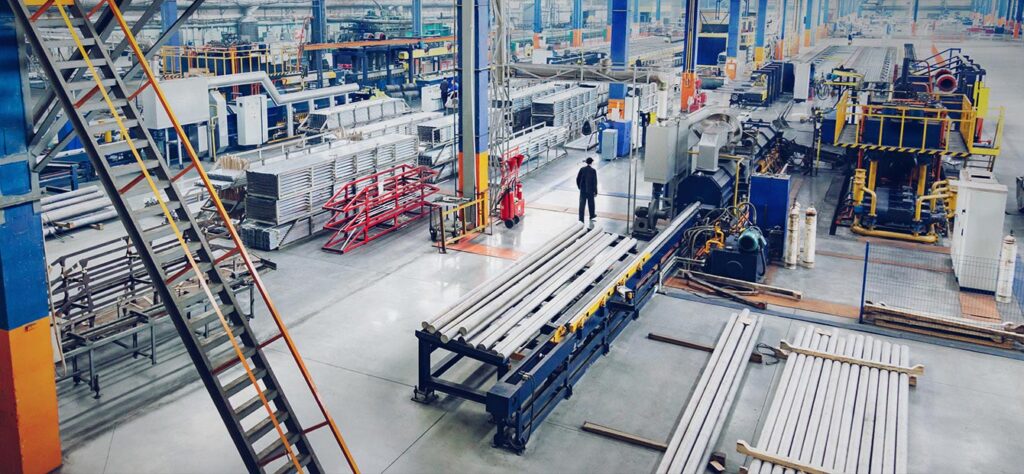How to Combat Rising Costs, Skills Shortages, and the Impact of Aviation on Climate Change
So much of the world’s function depends on flight. The aviation sector is one of the few industries that connects people and goods globally in support of tourism, trade, and economic development. However, there are pressing challenges in the aviation industry caused by growing demand for these functions that are reshaping the way aerospace companies must operate.
Rising costs, skills shortages, and environmental pressures are fundamentally changing the aviation industry, starting with manufacturers and suppliers who are impacted at the beginning of the product lifecycle.
This post explains each of the primary challenges in the aviation industry and how aerospace manufacturers and suppliers can rise above them and continue to be successful in supporting this rapidly-changing sector.

Combating the Effects of Rising Costs & Financial Pressures
The aviation industry is under constant financial pressures that originate from fluctuating fuel prices, vulnerable and uncertain supply chains, and rising costs for specialized materials such as titanium and advanced alloys.
At the same time, aircraft manufacturers and suppliers are facing increasing demand for higher performance, lighter-weight parts and assemblies, often with shorter lead times to meet tighter product development timelines.
What can aerospace manufacturers and suppliers do to overcome financial challenges?
Adopt lean manufacturing practices:
Manufacturers can maximize efficiency by implementing advanced machining techniques, waste reduction strategies, and automation.
- At Primus, we utilize Lean Six Sigma and the Primus Production System in an ongoing effort to enhance our integrated system of people, processes, and technology.
Practice strategic sourcing:
Mitigate cost volatility by building stronger relationships with suppliers and diversifying supply chains.
- At Primus, we maintain excellent relationships with our suppliers and partners. We maintain a presence in multiple locations across the world and manage world-class manufacturing operations, which allows us to serve customers in North America, Europe, Asia, and the Middle East on time and with products of any production quantity.
Invest in technology:
Improve production quality while reducing rework and downtime by incorporating digital twins, predictive analytics, and robotics.
- At Primus, we’re proud to house state-of-the-art machines, tools and equipment at our facilities that enable us to deliver the highest level of precision and quality to our customers for mission-critical parts and assemblies.

Working Effectively Despite Skills Shortages
Like many industries, a pressing issue in aerospace is the shortage of skilled engineers, technicians, and machinists. As older workers retire, the pipeline of new talent entering the aviation sector isn’t keeping pace with demand. And without a skilled workforce, innovation and production timelines can stall, putting customer relationships and business productivity in jeopardy.
What can aerospace manufacturers and suppliers do to overcome it?
Implement workforce development programs:
Cultivate the next generation of aerospace professionals and expand awareness of positions within the industry by investing in apprenticeships, technical training, and partnerships with universities.
- At Primus, we have diverse career opportunities, including apprenticeships and internships, to give individuals hands-on experience with the manufacturing aspect of the aerospace industry.
Upskill existing employees:
Give teams the tools they need to adapt to evolving technologies and processes, work smarter and more efficiently, and become leaders in bringing innovative methods to the floor by providing ongoing education and cross-training.
- At Primus, we empower all employees to participate in career growth, learn new skills, cross-train on different processes and technologies, and explore areas of interest.
Attract diverse talent:
Introduce fresh perspectives and strengthen your company’s resilience (and the resilience of the aerospace industry) by expanding recruitment beyond traditional pools.
- At Primus, we open our career opportunities to anyone interested in the field who has the required skills to fulfill a role, and are always open to on-the-job training for individuals looking to expand their skills to a new aspect of the aerospace manufacturing process.

Addressing the Known Impact of Aviation on Climate Change
A 2020 study published by the journal Atmospheric Environment found that global air travel and transit is responsible for 3.5% of all drivers of climate change from human activities.
The study evaluated all of the aviation industry’s contributing factors to climate change, including emissions CO2 and NOx emissions and the effect of contrails and contrail cirrus – short-lived clouds created in jet engine exhaust plumes at aircraft cruise altitudes that reflect sunlight during the day and trap heat trying to escape at night.
Growing demand for air travel has caused the industry’s impact on climate to continue to draw scrutiny, and aerospace companies have adopted more sustainable practices in response.
What can your aerospace manufacturing company do to help combat climate change?
Implement recycling programs:
Give scrap metals a second life by implementing recycling programs for excess alloys produced in the aerospace manufacturing process.
- At Primus, we recycle more than 95% of our excess alloys, equating to close to 1 million pounds of recycled metals each year, and we promote the use of recycled and organic materials.
Rethink the manufacturing environment:
Save on energy use and costs with energy-efficient lighting and equipment .
- At Primus, we rely on energy-efficient lighting and equipment, and have instituted energy conservation programs.
Make small but impactful operational changes:
Adjustments like going paperless, powering down during downtime, installing eco-friendly toilets, and using a community water bubbler all have a positive environmental impact for any company.
- At Primus, we’ve gone fully paperless and have implemented small changes around each of our facilities to reduce waste and lessen our environmental footprint.
Among these economic, workforce, and environmental pressures in the aviation sector that continue to escalate, there are opportunities to rethink processes, embrace innovation, and lead responsibly.
At Primus Aerospace, we play a role in that transformation by delivering high-precision components for some of the most advanced aerospace programs in the world. Through a commitment to quality, efficiency, and forward-looking engineering, we help customers overcome challenges and achieve lasting success – whatever your concerns and priorities may be.
Adapting to changing landscapes and economic pressures is nothing new for any industry – the challenge lies within how that adaptation is handled. By investing in people, technology, and sustainability, the industry can set a clear path and continue driving unique global connectivity.

